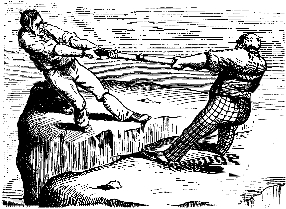Mini Workshop — Conflict in Narrative
Today’s blog is a mini-workshop for writers, on the subject of conflict in narrative.
For emerging writers, one of the most important aspects of story-telling is conflict. Something has to happen in a narrative, and what happens has to matter. By which I mean that whatever your protagonist wants has to be IMPORTANT — it has to have gravitas; it has to fully engage the reader.
And once you decide on that conflict — what your character wants and why they can’t get it — the conflict must also be a power struggle between equal forces. In other words, it is imperative the reader is left in doubt as to the outcome.
The antagonist can be one of the character’s weaknesses, or society, or a windstorm, God, or another character. Even if the conflict is between the protagonist and him or her self, power should shift back and forth. One minute we think your hero will overcome her compulsion to sleep with strangers/to shoplift/to use drugs, the next we fear she will fail. . .
And, okay, here’s where we get a bit more subtle. Janet Burroway, in her book “Writing Fiction” says this:
There has been criticism over the years concerning the apparent patriarchal nature of narrative seen as a power struggle – seeing the world in terms of conflict and crisis – enemies and war. This limits, the argument goes, not only literature but encourages an aggressive, antagonistic view of our own lives. Further, the resolution notion is untrue to life, and holds up perfect, unity, and singularity as goals at the expense of acceptance, nuance, and variety. Speaking of the “Gladiatorial view of fiction,” Ursula Le Guin writes:
People are cross-grained, aggressive, and full of trouble, the storytellers tell us; people fight themselves and one another, and their stories are full of their struggles. But to say that that IS the story is to use one aspect of existence, conflict, to subsume all other aspects, many of which it does not include and does not comprehend.
Romeo and Juliet is a story of the conflict between two families, and its plot involves the conflict of two individuals with those families. Is that all it involves? Isn’t Romeo and Juliet about something else, and isn’t it the something else that makes the otherwise trivial tale of a feud into a tragedy?
What is the ‘Something Else?” Dramatist Claudia Johnson says: “Whereas the hierarchical or ‘vertical’ nature of narrative, the power struggle, has long been acknowledged, there also appears in all narrative a ‘horizontal’ pattern of connection and disconnection between characters which is the main source of its emotional effect. One is the Tower – the other the Network (to use the language of psychologists) the need to climb implies conflict, the need for community, is the network. The need to win, the need to belong. These forces also drive fiction and add, in fact, to the tension.
Which is to say, narrative is about people, about relationships and about yearning. Even if you’re writing a mystery/suspense novel involving a lot of car chases and gunfights, remember that people are involved in these scenes, and each of them desire something, each of them is yearning for something. Make the reader care about whether or not they get it, and you’re well on your way to writing something readers will want to read.

I’m an avid reader and this essay really hit the mark for me. There are quite a few books I start which I give up on within 40 pages or so. I’ve not been able to articulate exactly what it was that didn’t keep me engaged, but I think this essay explains it perfectly — “…people are involved in these scenes, and each of them desire something, each of them is yearning for something. Make the reader care about whether or not they get it, ”
If by the 40th page I don’t really care, I give up.
I look forward to reading your work. regards, Angela
Thanks for commenting, Angela. Always wonderful to meet an avid reader! A friend who taught creative writing told me she once had a student turn in a manuscript that began with 40 pages of BEAUTIFUL descriptions of rocks in a desert landscape. On page 41 a man is seen cresting a dune. She shredded the first 40 pages and wrote, on the top of p. 41: “Your story starts here!” 40 pages is probably enough! L.
Excellent. Without desire, it is all just noise.
You got it, Donna! Thanks for commenting.